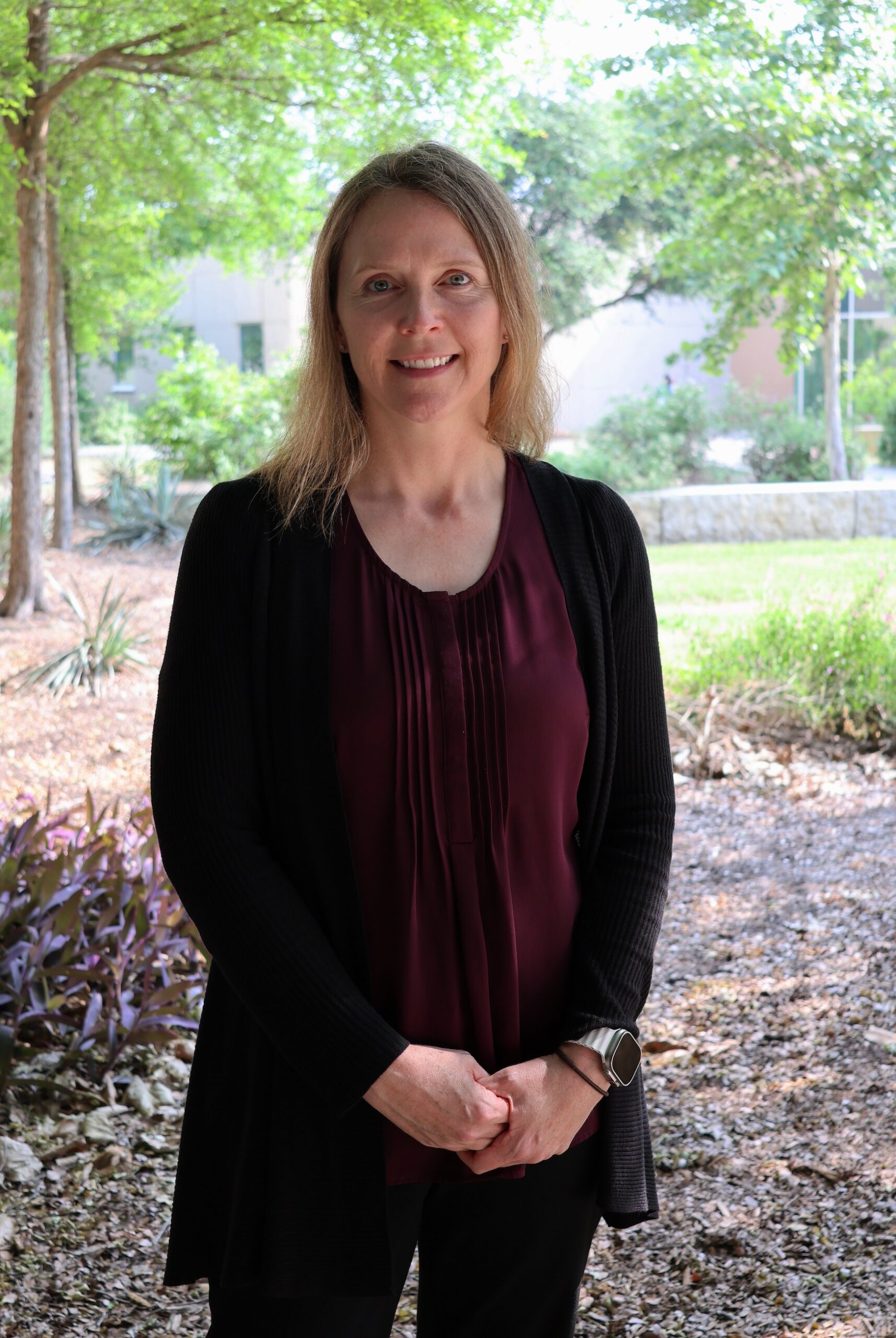SAN ANTONIO (May 9, 2024) — Wearing many hats comes naturally to Kathryn Shelton, D.V.M., Ph.D., DACLAM.
This is a strength she’ll tap into as she joins Texas Biomedical Research Institute (Texas Biomed) and Southwest National Primate Research Center (SNPRC) with not one, not two, but three official roles: Associate Director for Veterinary Resources, Institute Attending Veterinarian and Associate Professor.

As Attending Veterinarian, she will oversee the Institute’s animal care program, which encompasses more than 2,600 nonhuman primates and 1,800 rodents. As Associate Director, she will help manage the people who care for the animals – about 150 staff members, including animal caretakers, veterinary technicians and veterinarians.
“As leaders in animal care and welfare, we want to continue to raise the bar on best practices,” says Dr. Shelton. “To do that, we have to take care of our team members and ensure their needs are met, so that they in turn can provide the best care for the animals.”
A key part her focus will be to grow SNPRC’s team of veterinarians.
“Not only does Kathryn bring years of nonhuman primate veterinary experience, she also brings extensive leadership experience,” says SNPRC Director Corinna Ross, Ph.D. “I am looking forward to her growing the veterinary program at SNPRC, which will significantly contribute to the resources we provide to investigators and enhance the health and wellbeing of all of our animals.”
Prior to joining Texas Biomed, Dr. Shelton spent 10 years at the Keeling Center for Comparative Medicine and Research at The University of Texas MD Anderson Cancer Center. While there, she enjoyed caring for a wide variety of lab animals and collaborating with researchers across many different studies. She also helped establish a colony of baboons free of specific pathogens.
“I had the really tough job of caring for baby baboons,” she says with a smile.
As Associate Professor, her third hat at Texas Biomed, Dr. Shelton will pursue independent research projects. She is particularly interested in studying how the immune system influences susceptibility to disease and responses to preventative measures like vaccines, and how environmental factors shapes these interactions.
“I am excited to find opportunities for research, especially related to early life events and the long-term effects on the immune system,” she says. “With animals living long lives at Texas Biomed, it provides the opportunity to follow them over time.”
Dr. Shelton’s love of animals runs deep. She is a self-described horse person but does not play favorites when it comes to caring for animals. After attending veterinary school at University of Georgia, she worked as a small animal veterinary clinician for three years. While rewarding, she realized she missed research.
“I really want to be on the cutting edge of knowledge,” she says. “To me, that is the most exciting place to be, when you are trying to answer questions that the answer is fundamentally unknown.”
She decided to pursue a dual graduate degree program in lab animal medicine and a Ph.D. in molecular pathology at Wake Forest University. It was there that she got the taste for juggling multiple research jobs at once.
“I’d be pipetting in the lab, running my experiment, get a page on my pager and have to run across campus to check on a pig,” she recalls. “I remember thinking ‘This is crazy’, but I liked it.”
She passed the lab animal medicine board certification test, becoming a Diplomate of the American College of Laboratory Animal Medicine (DACLAM), and has been combining veterinary care and research ever since.
“I’m very passionate about animal care and welfare, and that goes hand in hand with my passion for the discovery of knowledge for the benefit of humans and animals,” she says.
She is excited to bring that passion to a national primate center where she can support even more research, and join Texas Biomed as it is moving forward with its 10-year strategic plan for growth.
“Texas Biomed has a strong vision for the future and is in a time of change,” she says. “I am excited to be a part of that.”